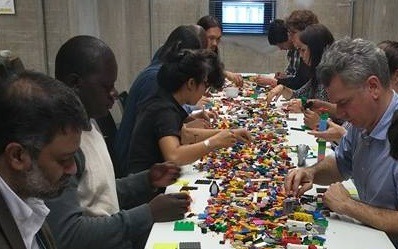
Group Build DW S2S Manifesto
I had the honour of working with Deutsche Welle Akademie at the end of last year on what for me was an interesting and important challenge:
How do you create a global manifesto on information sharing and freedom of expression with participants from 14 different countries, when each has with their own culturally valid and particular way of doing things and seeing things?
There were many challenges when deciding to do this work. There was a postal strike in South Africa and all my LEGO® SERIOUS PLAY® starter kits I had ordered went missing. I had ten kits I had been working with but certainly not the beautiful, pristine white boxes which included a manual and some comfortable and easy building starts.
A challenge in itself coupled with the fact that only 4 hours had been set aside to do this. When I started working in LEGO® SERIOUS PLAY® I was an absolute purist. I would only do work which lasted a day at the very least. I was turning away a lot of business… so I decided I would eat my own cooking and try and be agile. I agreed to the assignment not knowing whether four hours could ever be enough to achieve what they needed.
It was not only possible, it was a huge success. Here is the feedback:
“Elaine designed and executed a very clever and creative program using LEGO Serious Play that helped us to achieve our goal – crafting a set of principles to foster freedom of expression. Moreover, with colleagues from 14 different countries, LEGO became a common language and generated ideas that may have remained unearthed in a more traditional workshop methodology. Our delegates were hugely impressed!”
Steffen Leidel – Editor onMedia, Deutsche Welle Akademie
I wanted to share with you how and why it worked and give you some insights into how you, too can do this kind of process in a very short period of time.
Stop Being Precious About the Kit
Firstly, I stopped being precious about the kit. My 14 LEGO® SERIOUS PLAY® starter kits I had ordered had gone missing in the postal delivery strike in South Africa and there were no kits available to purchase in South Africa. I had ten kits with connectors as a base from which to work.
The rest I decided to freestyle. I went to a LEGO outlet in Cape Town and bought a mixture of interesting LEGO figures and a mixture of boxes of Duplo and Lego bricks – see in pic above. It was possibly the best thing I could have done. The Duplo was actually the easiest way into the LSP process I had yet to see and many delegates chose the Duplo before the bricks in the initial stages of the workshop. And the delegates loved the unique and curious figures.
<——- Girl Crush
Find the Right Questions
What I realised because of the many constraints was that no matter how powerful the bricks were, that the success of the process is dependent on facilitating well. It is critical that the questions you use are powerful, open ended and really well thought through. The bricks enable exploration and the surfacing of possibility but it is vital that you take your role as facilitator seriously and really plan the crucial and key questions that need to be raised for people to build, share and explore. I probably spent two days just thinking about the kinds of questions which would unlock the participants.
Have the Right Space to Run the Process in
I was really lucky with this particular workshop. The Cape Town Creative Academy had kindly agreed to host the process in a massive room. It allowed me space for group setup, a group building table and a long table to include all delegates at. I have found that one of the most powerful things you can do in a process when moving from current to future states is to physically move the delegates from one table to another. I think it speaks to the idea of somatic learning when the shift is also felt on the body, people genuinely feel they are moving into another state.
Allocate Timelines to your Exercises
As there were only four hours with what ended up being 16 (!) delegates, it was important that I got my timing right. I mapped out how long I thought it would take (it always takes longer) and then designed backwards, taking things out and merging other things.
Breaks
One of the learnings that has come out for me after running a number of LSP interventions is the importance of breaks. I break every 50 minutes for ten minutes. Delegates don’t necessarily take the break, many carry on fiddling with their bricks but the ten minute breaks create a sense of ease and spaciousness in the process.
Honour Closure
We so often forget that closing a process well can be as powerful as the process itself. I usually set aside about 30 minutes at the end for insights, feedback and learnings from the participants. This is key to anchoring the learning and building commitment to the outcomes of the process.
Design
Here is the design I developed and followed for the process. I initially broke participants up into tables of four each and then ran the future build and guiding principles as a group at one table. I like to use the floor when building guiding principles as it sets up a different space and another way of seeing.
Deutsche Welle – Building a Manifesto
1.30pm Tower build at each of the four tables (3 mins for build) – tall as hand with figure on top
Build a fun figure representing you and stressing one quality you contribute to the S2S initiative (4 mins) – 5 bricks each
What for you does the South to South dialogue stands for and against – Build individually at each table 10 mins (5 mins to put together) (5 mins feedback per table)
Move the models and group them if similar at one table
Put your figure somewhere – What contribution are you able to and willing to make 5 mins for build (30 mins) Write up contribution.
2.30pm Break 10 mins
2.40pm Future vision of what it could be – Individual builds then group build
3.40pm Break 10 mins
3.50pm One big build – connectors
4.40pm Break 10mins
4.50pm All build individually at one big table – How do we get there?
What will be the principle to guide you? 10 mins
4 bricks per person
Vote on Principles
Write up the most voted on principles
Closure and feedback
5.30pm End
My Reflections on the Process
What is heartening and extraordinary is that the group took the guiding principles that they had all co created and spent the next day fleshing them out into actual process and programmes that they could commit to. Below is the raw flipchart manifesto we constructed during the LSP process and here is the document that Deutsche Welle released in January 2015. As you will see the principles are almost word perfect from their LSP process.
What I learnt from designing and running this process is to trust the bricks and to trust yourself. It’s pretty much a winning combination when it is coupled with time to think, time to prepare and with people who are passionate about making a difference.
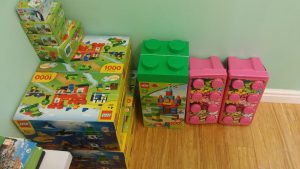

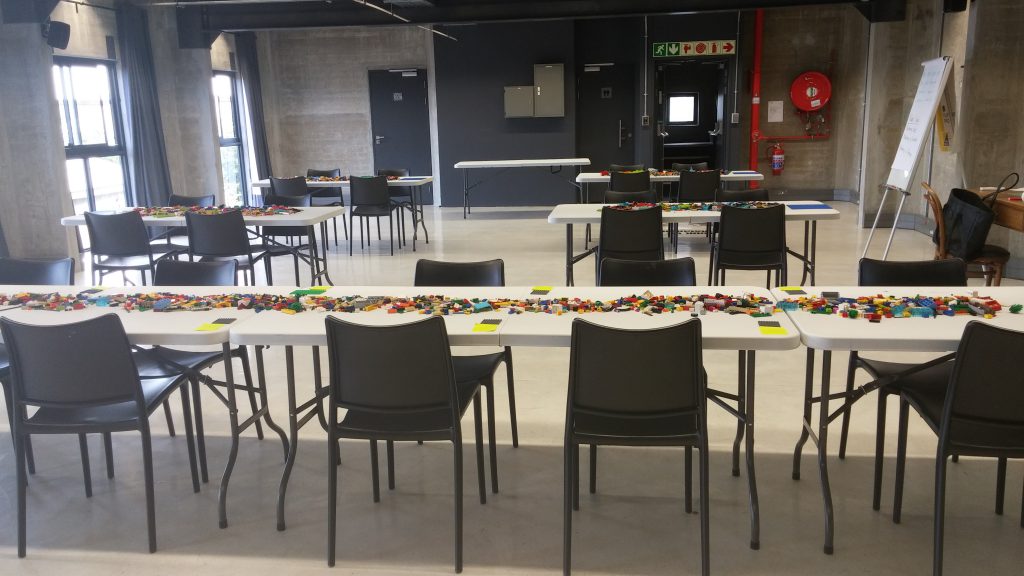
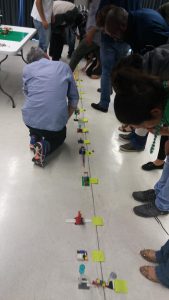
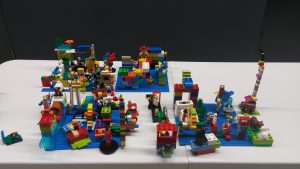
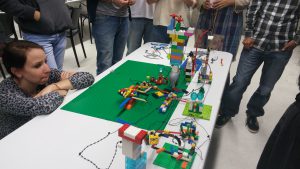
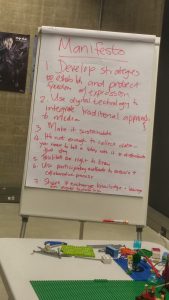


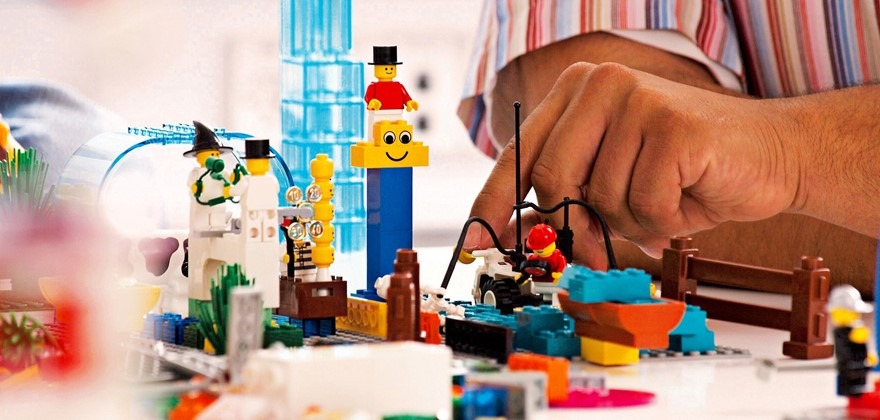


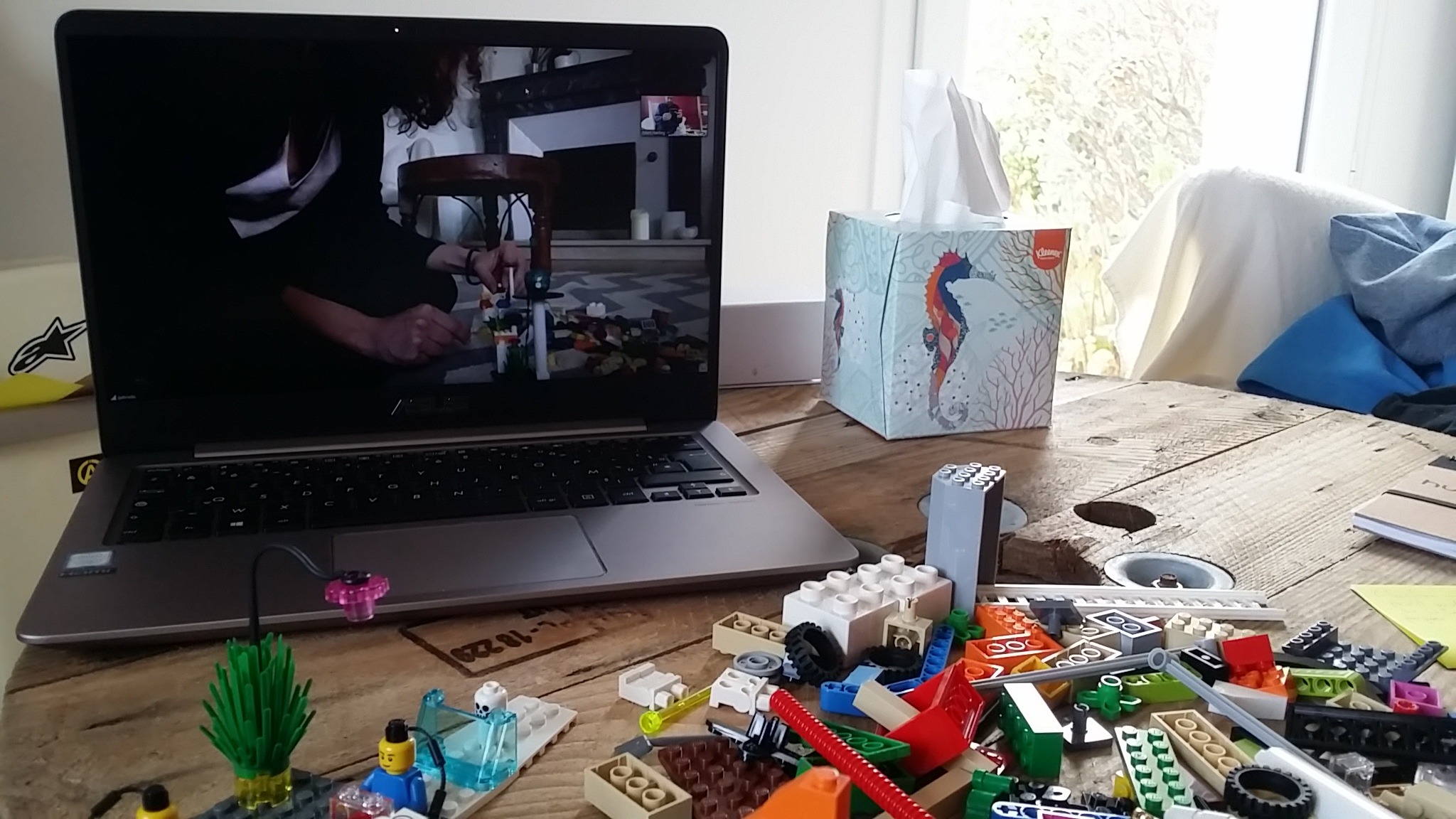
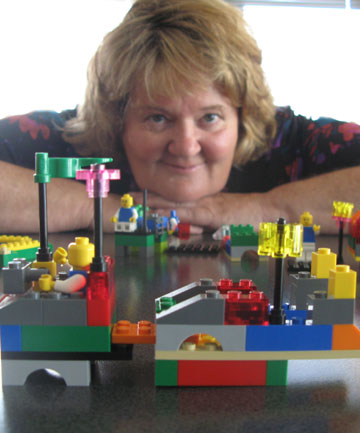
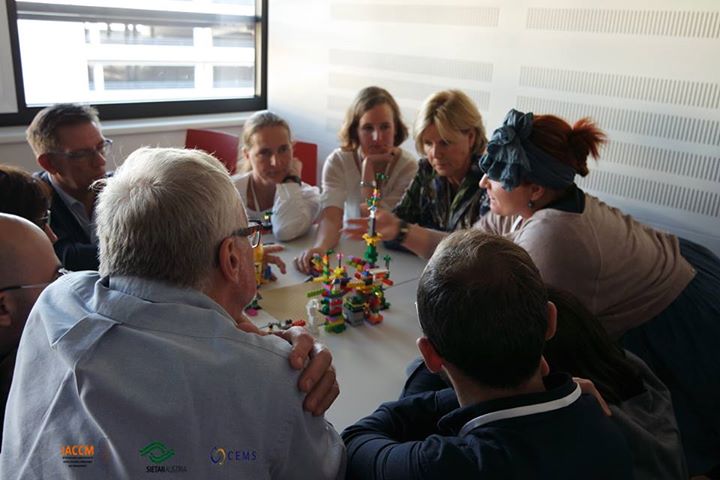
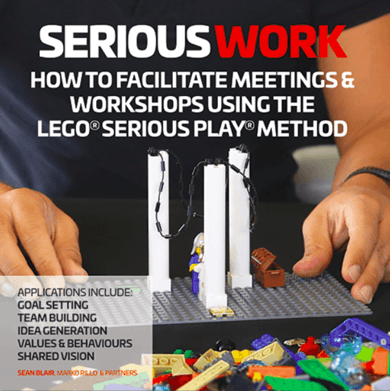
 Become a LEGO Serious Play facilitator - check one of the upcoming training events!
Become a LEGO Serious Play facilitator - check one of the upcoming training events!
Great story. Thanks for sharing!
Felicitations for the clear explanation of your experience with this lsp workshop. I agree that questions and a good timing are key for succesful workshops. Success for the coming ones.
Thanks for sharing that brilliant story. What a great result!
Thank you for sharing such a great success! I usually run LSP sessions on round-table settings as I found that easier. Nonetheless, I’m impressed with your success and wonderful result!